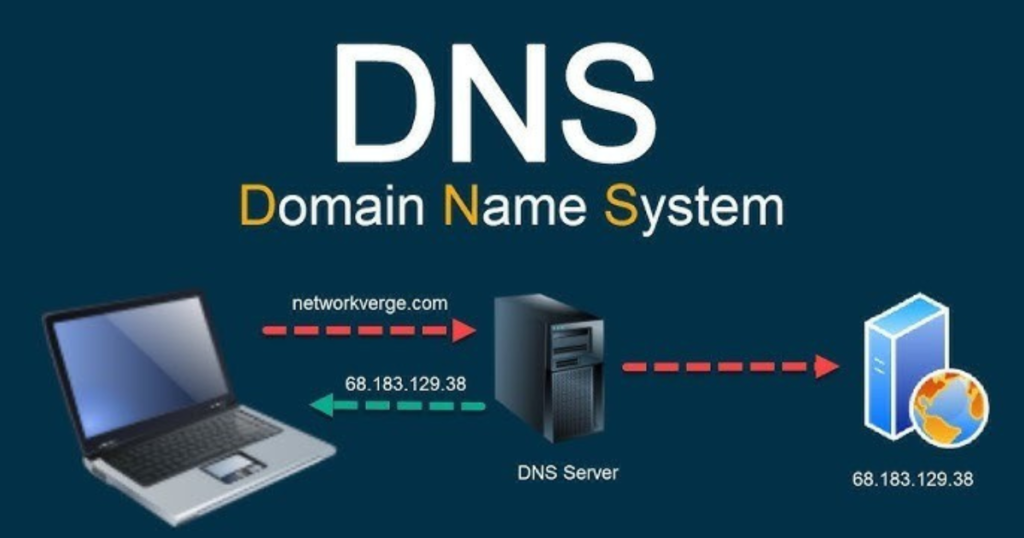If you’re planning to launch a website, understanding domain hosting is crucial. Domain hosting allows you to connect your website’s domain name to a server, making it accessible to users worldwide. This guide will walk you through everything you need to know about domain hosting as a beginner.
Domain hosting is a service that allows individuals and businesses to register, store, and manage domain names. When a user enters a domain name (e.g., www.yourwebsite.com), the hosting service directs them to the corresponding website files stored on a web server.
- A user types a website address in their browser.
- The domain hosting service translates the domain into an IP address.
- The request is directed to the web hosting server, which delivers the website content.
- The website loads in the user’s browser.
Many beginners confuse domain hosting with web hosting, but they are different:
- Domain Hosting: Manages your domain name (e.g., yourwebsite.com).
- Web Hosting: Stores and serves your website’s content.
- Some companies offer both domain and web hosting as a package.
- Multiple domain names are managed on a single hosting server.
- Affordable and suitable for beginners.
- Limited customization options.
- A dedicated server for a single domain.
- Offers better security and control.
- Best for businesses with high traffic.
- The hosting provider handles maintenance and security.
- Ideal for beginners who want hassle-free domain management.
- Choose a provider with at least 99.9% uptime.
- Downtime can result in lost traffic and revenue.

- Fast domain resolution ensures quicker website loading.
- Look for providers with global DNS servers.
- SSL certificates, domain privacy protection, and two-factor authentication (2FA) are essential.
- Compare registration, renewal, and transfer fees.
- Some providers offer free domain registration for the first year.
- Look for 24/7 support via chat, phone, or email.
- Responsive support is crucial for troubleshooting issues.
- Free domain for the first year.
- One-click WordPress installation.
- Affordable pricing with free WHOIS privacy protection.
- Easy-to-use domain management tools.
- Offers domain registration and hosting bundles.
- 24/7 customer support.
- Simple interface and easy domain management.
- Free DNS management and email forwarding.
- Budget-friendly with free domain for the first year.
- Good customer support.
- Keep it short, memorable, and easy to spell.
- Avoid numbers and hyphens.
- Use .com, .net, or .org for credibility.
- Use a domain registrar’s search tool to see if your preferred name is available.
- If unavailable, try variations or alternative extensions (e.g., .co, .io, .blog).
- Select a domain registrar and add the domain to your cart.
- Choose the registration period (1 year, 2 years, etc.).
- Update DNS settings to connect your domain to a hosting provider.
- Enable domain privacy protection to hide personal information.

- A Record: Connects your domain to an IP address.
- CNAME Record: Points subdomains to other domains.
- MX Record: Directs emails to the right mail server.
- Domains need to be renewed annually to remain active.
- Set up auto-renewal to avoid expiration.
- You can move your domain to another hosting provider.
- Unlock the domain and get an EPP code from your current registrar.
- Check DNS settings and allow time for propagation (24–48 hours).
- Clear browser cache and restart your router.
- Renew your domain before the expiration date.
- Some registrars offer a grace period to recover expired domains.
- Enable domain lock and use strong passwords.
- Activate two-factor authentication (2FA).
- Use a premium DNS service for faster domain lookup.
- Choose a provider with global DNS infrastructure.
Also Read: The Ultimate Guide To Server Hosting For Beginners
Domain hosting is an essential part of building a website. By choosing the right hosting provider and properly managing your domain, you ensure seamless access to your website. Whether you’re a blogger, entrepreneur, or business owner, understanding domain hosting will help you establish a strong online presence.
Domain hosting manages your domain name, while web hosting stores website files and serves them to visitors.
Some providers offer free domains with web hosting plans, but standalone free domain hosting is rare.
Prices vary, but domain registration typically costs $10–$20 per year, with additional hosting fees if bundled.
Yes, you can transfer your domain to a new provider by unlocking it and using an EPP code.
Your domain expires, and someone else may register it. Some providers offer a grace period.

